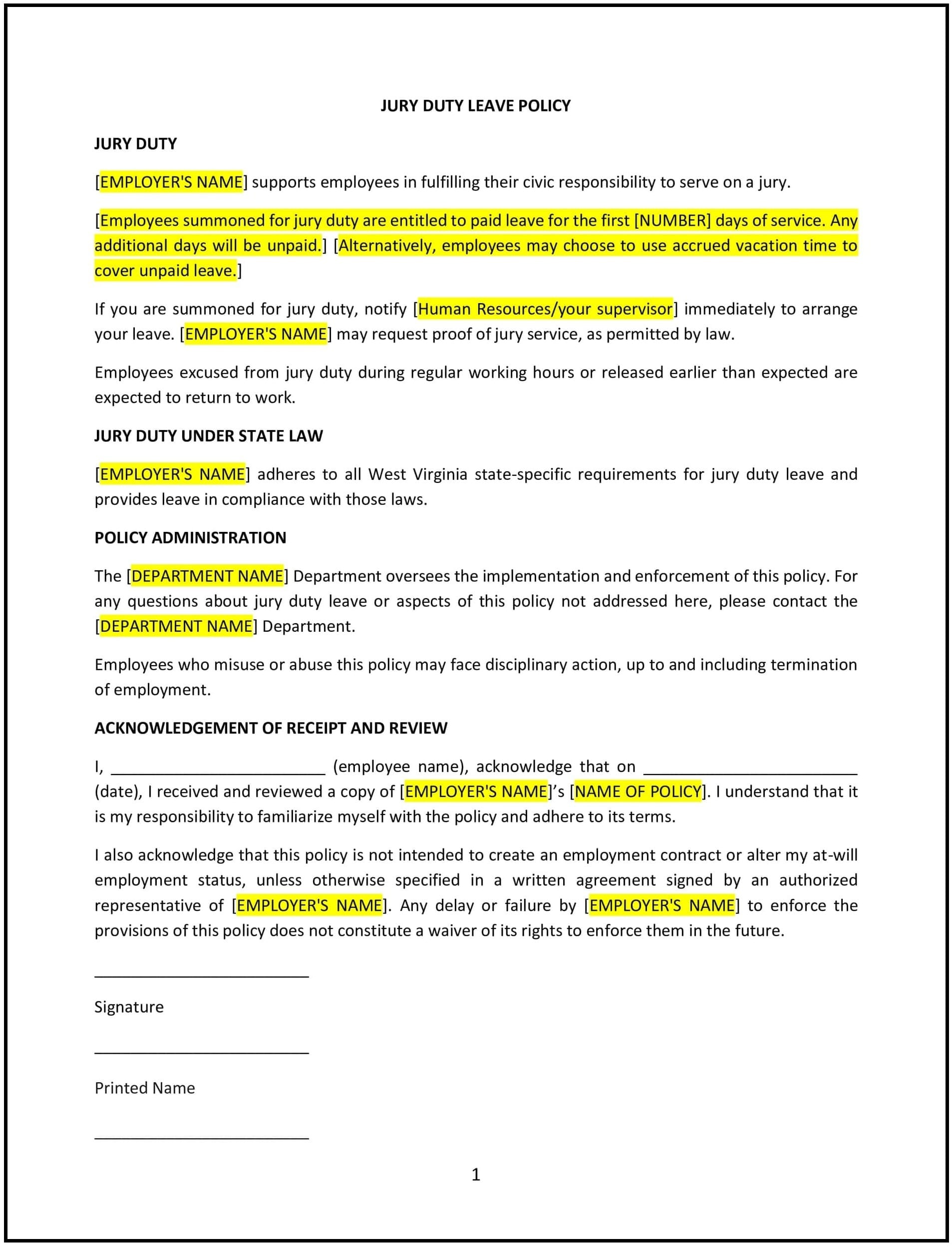Jury duty leave policy (West Virginia): Free template
Got contracts to review? While you're here for policies, let Cobrief make contract review effortless—start your free review now.

Customize this template for free
Jury duty leave policy (West Virginia)
In West Virginia, a jury duty leave policy outlines an organization’s approach to supporting employees who are called to serve on a jury. This policy ensures employees can fulfill their civic responsibilities without fear of job loss or penalties while balancing the organization’s operational needs.
The policy explains leave eligibility, notification procedures, and pay guidelines to provide clarity and compliance with West Virginia labor laws.
How to use this jury duty leave policy (West Virginia)
- Define eligibility: Specify that all employees, regardless of role or tenure, are entitled to take leave for jury duty as required by law.
- Outline notification procedures: Require employees to provide advance notice of their jury summons, along with a copy of the summons for documentation purposes.
- Address pay guidelines: Clarify whether employees will receive regular pay during jury duty leave or if it will be unpaid, in accordance with West Virginia labor laws and company policy.
- Ensure job protection: Reaffirm that employees’ jobs are protected during jury duty leave, and they will not face penalties or adverse treatment for fulfilling their civic duties.
- Support compliance: Align the policy with West Virginia state laws governing jury duty leave to ensure legal adherence.
Benefits of using a jury duty leave policy (West Virginia)
- Promotes civic engagement: Encourages employees to participate in jury duty without fear of workplace repercussions.
- Supports compliance: Ensures adherence to West Virginia labor laws protecting employees called to serve on juries.
- Enhances employee trust: Demonstrates the organization’s commitment to supporting employees in meeting their civic responsibilities.
- Reduces disputes: Provides clear guidance on leave eligibility, pay, and expectations, minimizing misunderstandings.
- Maintains operational continuity: Establishes procedures for managing workloads during employees’ jury duty leave.
Tips for using a jury duty leave policy (West Virginia)
- Communicate clearly: Share the policy with employees during onboarding and ensure it is accessible for reference when needed.
- Train managers: Provide training to supervisors on handling jury duty leave requests and supporting employees during their absence.
- Maintain documentation: Keep records of jury duty notices and leave arrangements to ensure transparency and compliance.
- Address operational impacts: Plan for coverage or workload redistribution during employees’ jury duty leave to minimize disruptions.
- Review periodically: Update the policy to reflect any changes in West Virginia laws or organizational practices.